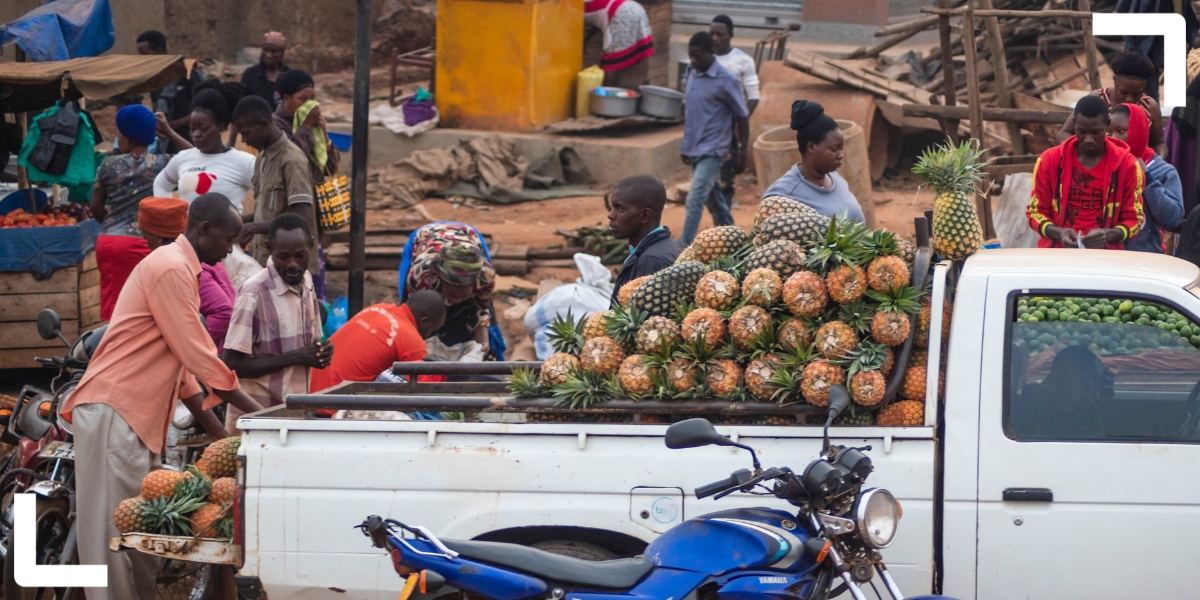The African Cities Research Consortium (ACRC) has confirmed the cities going forward into its implementation phase: Accra, Ghana; Harare, Zimbabwe; Kampala, Uganda; Lagos, Nigeria; and Nairobi, Kenya.
This follows the foundation phase research and engagement work in 12 cities, which has taken place over the last few years. The holistic exploration of city systems, political settlements and urban development domains enabled city teams to identify priority complex problems. Their proposed strategies to address these problems played a pivotal role in determining the cities moving ahead.
With pilot projects and the first four selected cities announced in November 2023, Kampala is the final city chosen to proceed to ACRC’s next stage.
Along with action research project proposals during the foundation phase, the final city decision took the overall balance of implementation cities into account – ensuring diversity in geography, size, income levels, fragility and political context.
Over the next few years, local ACRC city teams will implement a number of urban development interventions in the selected cities, designed to address challenges identified in the foundation phase research and advance urban reform. Initial projects being rolled out in the cities are outlined below.
The Kampala project will focus on Ggaba food market, a key source of fresh produce for the city and one of seven major markets owned by the Kampala City Council Authority (KCCA). Vendors at Ggaba market face multiple challenges related to inadequate sanitation, poor hygiene and substandard food safety practices.
This action research intervention is aimed at enhancing the market’s food safety and sanitation systems. Through establishing a coalition of key stakeholders across public, private and civil society sectors, the project will build on previous experience to improve sanitation by developing a community-led approach and employing technologies for faecal sludge management. The system will generate gas to meet some on-site energy needs and support business enterprises, while compost byproducts will enable urban farmers to generate sales income. The project also aims to establish and formalise food safety certification processes.
In Accra, the first action research project aims to develop an innovative business model for a community-led organic waste management system. Old Fadama – a historic informal settlement, with a growing population of over 120,000 – is the location of one of the city’s largest fruit and vegetable markets. Waste is a highly politicised issue in Accra, dominated by large private contractors. As a result, informal settlements like Old Fadama are excluded from the formal refuse collection system, meaning that waste – mostly organic – goes uncollected. Informal settlements and markets therefore depend on informal collectors.
Promisingly, there is appetite for change. Initiatives by the city assembly to support and formalise informal waste collectors, together with policies that foster climate resilience and the green economy, are shining a spotlight on the critical importance of recycling and better waste management. This community-led waste management project therefore seeks to establish an organic waste value chain – including household waste separation, sorting and collection – along with a composting business, which will provide employment and better working conditions for waste collectors.
Researchers in Lagos are currently developing several action research proposals, centred around improving access to housing for low-income families, implementing climate resilience action plans to provide flood protection in low-income neighbourhoods, and tackling violent crime hotspots with better street lighting.
As shared previously, pilot action research projects are already underway in Nairobi and Harare, which were the first two cities confirmed to be proceeding to ACRC’s implementation phase.
In Nairobi, the pilot intervention is focused on improving children’s access to healthy diets, by strengthening and expanding an existing school feeding programme to encompass schools located in informal settlements.
The Harare project centres around upgrading and regularising informal enterprises located in the Glen View Eight complex, by supporting informal traders to mobilise, establishing a technical working group to address key challenges and conducting action research to inform negotiation and implementation processes.
Although the five cities selected for the implementation phase will be ACRC’s primary focus in the next phase, the consortium is continuing to work with the seven cities not going forward to maximise the positive impact of the work undertaken so far. This will include supporting city teams with smaller action research projects, continuing to provide support around research uptake and engagement, and providing funding for other interventions.
Header photo credit: vlad_karavaev / iStock. A street vendor selling pineapples at a market in Kampala, Uganda.
Note: This article presents the views of the author featured and does not necessarily represent the views of the African Cities Research Consortium as a whole.
The African Cities blog is licensed under Creative Commons Attribution-NonCommercial-NoDerivatives 4.0 International (CC BY-NC-ND 4.0), which means you are welcome to repost this content as long as you provide full credit and a link to this original post.


